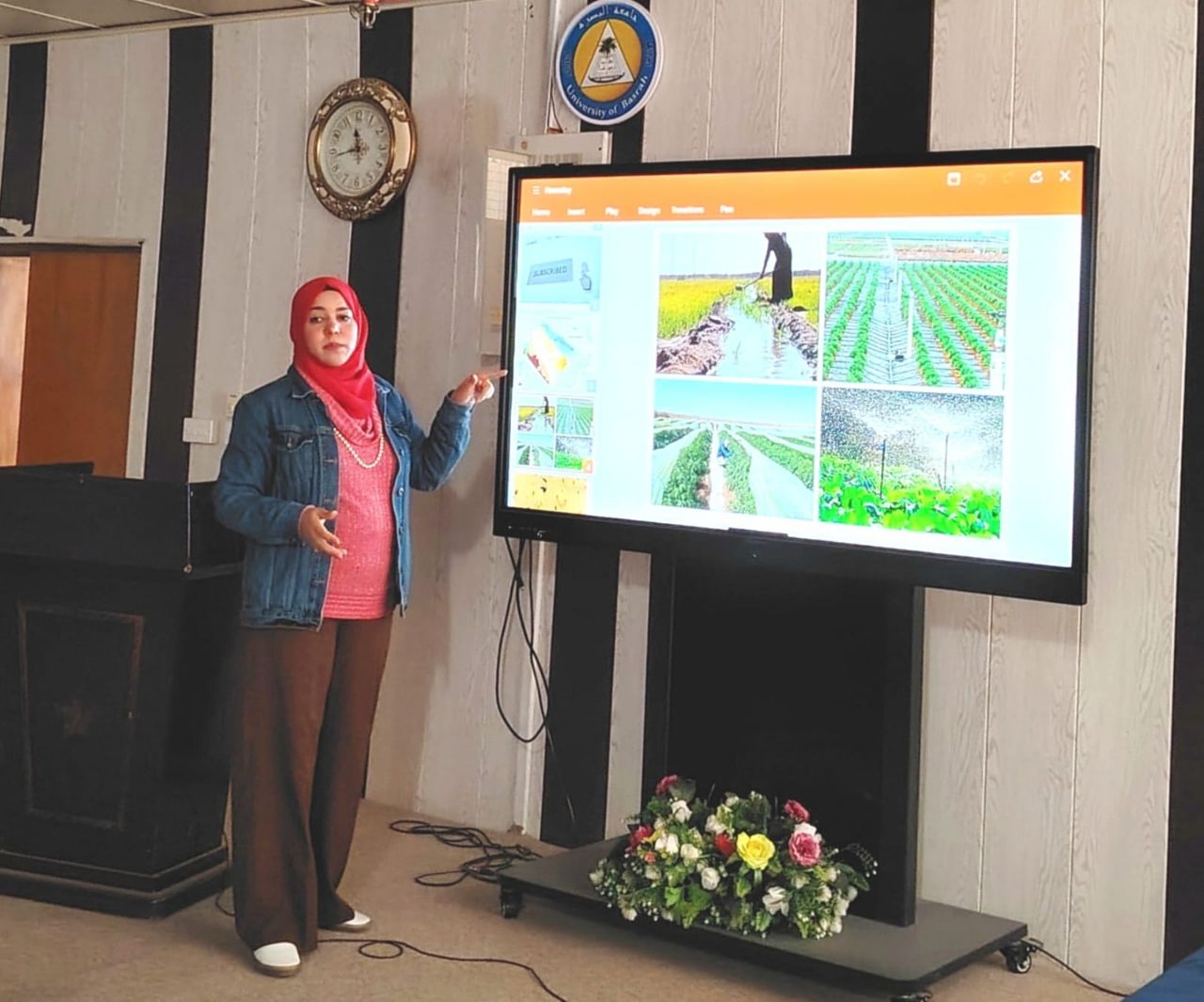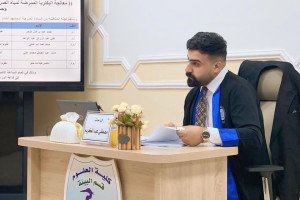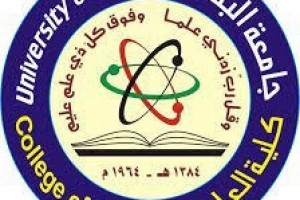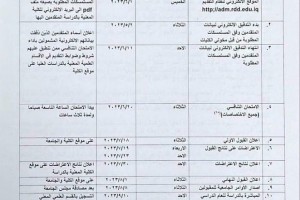
Presented by the lecturer, Dr. Intisar Jameel Hamad, the workshop aimed to shed light on the importance of nanoclay as a newly discovered material that characterized by unique capabilities in transforming deserts into fertile lands. The workshop included an introduction to the nanomaterial and its characteristics. It also identified the most important types of nanoclay that are used in various medical, biological and industrial applications. One of the interesting applications is the possibility of transforming sandy soils into agricultural lands in just seven hours and with a sustainability period extending to five years, thus providing water and nutrients and increasing agricultural productivity.
The workshop was prepared due to the urgent need for alternative materials to replace the shortage of water levels and quantities in southern Iraq as a result of climate changes, which lead to the loss of green cover and thus increase global warming and desertification. The workshop recommended the necessity of manufacturing this material locally and testing it on sandy lands in southern Iraq in order to work on increasing the green cover and productivity of vegetables and fruits.




.jpeg)
.jpeg)



